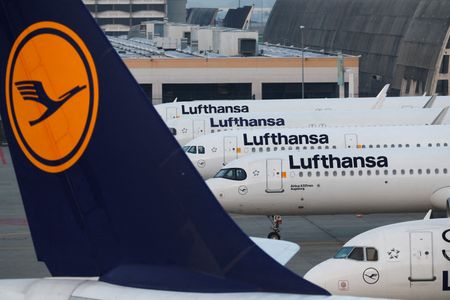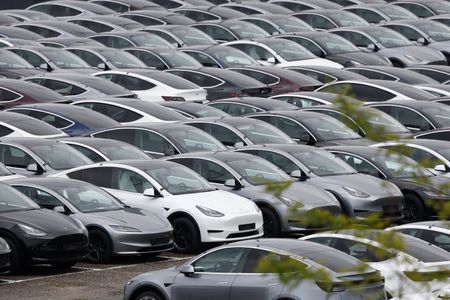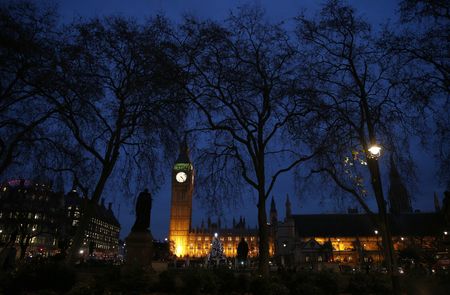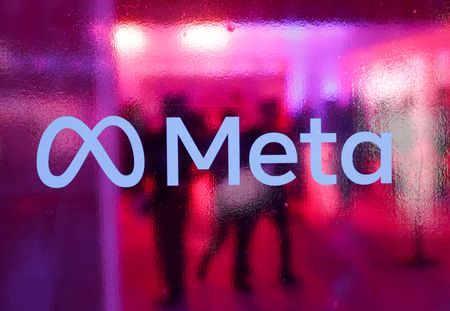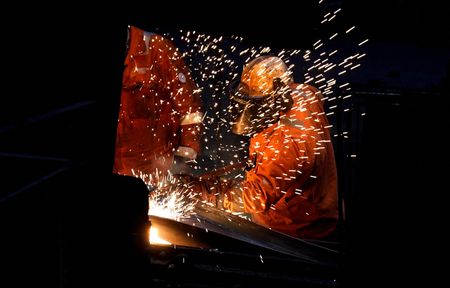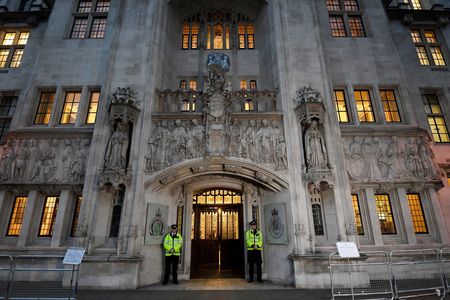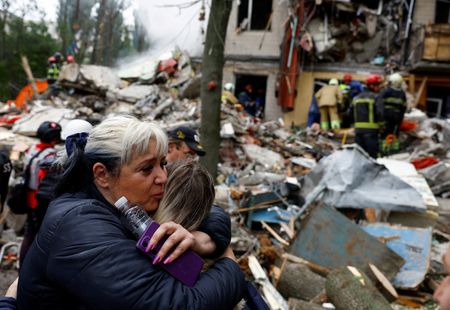By Joanna Plucinska, Rajesh Kumar Singh and Jesus Calero
LONDON/CHICAGO/GDANSK (Reuters) -European airlines Lufthansa and Air France-KLM reported higher second-quarter profits on Thursday, defying worries that economic uncertainty and U.S. tariffs might hit transatlantic travel.
Transatlantic connections are among the most lucrative for airlines, having bolstered British Airways-owner IAG in recent years as European competitors struggled.
A number of U.S. airlines, including Delta, abandoned their full-year financial forecasts this spring on the back of weakening travel demand after U.S. President Donald Trump’s tariffs dented business and consumer confidence.
European airlines, however, are bucking the trend.
Lufthansa said on Thursday that demand in the U.S. remained strong despite a weaker U.S. dollar, while Air France-KLM highlighted the strength of its premium offering.
Lufthansa reported a 27% year-on-year increase in second-quarter operating profit to 871 million euros ($995 million), beating analysts’ average forecast of 805 million euros.
“Although the second quarter was again marked by geopolitical crises and economic uncertainties, we are today confirming our positive outlook for the full year,” Chief Executive Carsten Spohr said in a statement.
Spohr added on a call with reporters that uncertainty remained about the future of demand, but lower oil costs and efficiency efforts were helping to keep the outlook stable.
CONTRAST TO UNITED STATES
U.S. airlines have reported an improvement in bookings since late June after a sharp drop in March and April when Trump unleashed his trade war.
While demand has stabilised, airline executives say it is below estimates at the start of the year. Moreover, spending by price-sensitive travellers remains depressed amid lingering uncertainty about the U.S. economy and rising living costs.
European travellers are known for being more price-sensitive than Americans, often having less spending power. But wealthy Americans are flocking to Europe this summer.
While domestic U.S. travel has struggled, hitting budget airlines, resilient demand for premium and long-haul international travel has helped Delta and United Airlines perform better.
FIXING WEAKNESSES, NEW STRENGTHS
Lufthansa’s profit beat was helped by its investment in Italy’s ITA Airways, which contributed a “surprisingly large” profit to the group’s bottom line, Bernstein analyst Alex Irving said in a note to clients.
Still, Irving said Air France-KLM had “meaningfully outperformed” Lufthansa on North Atlantic sales.
At 1106 GMT, Lufthansa shares were down 1.4% and Air France-KLM’s up 0.6%.
Air France-KLM and Lufthansa have both seen big share price rises this year as they’ve managed to weather ongoing geopolitical turbulence.
Lufthansa has struggled with rising labour costs as well as a slower return in traffic from Asia since the pandemic, issuing two profit warnings last year.
The move to focus on Italy was a cost-saving measure – the Rome hub is far cheaper to maintain than German bases – that is starting to pay off, the company said.
Air France-KLM’s second-quarter operating profit rose to 736 million euros from 513 million euros a year earlier, in line with analyst expectations.
While Air France has benefited from strong demand to Paris and capitalised on its luxury French appeal, KLM has struggled with ongoing challenges at Schiphol airport near Amsterdam.
Air France-KLM Chief Executive Ben Smith told reporters the group was keen to bolster its operations in Copenhagen now that it has taken a majority stake in Scandinavian carrier SAS, possibly reallocating resources from Air France and KLM.
($1 = 0.8751 euros)
(Additional reporting by Ilona Wissenbach and Rachel More. Editing by Adam Jourdan and Mark Potter)

